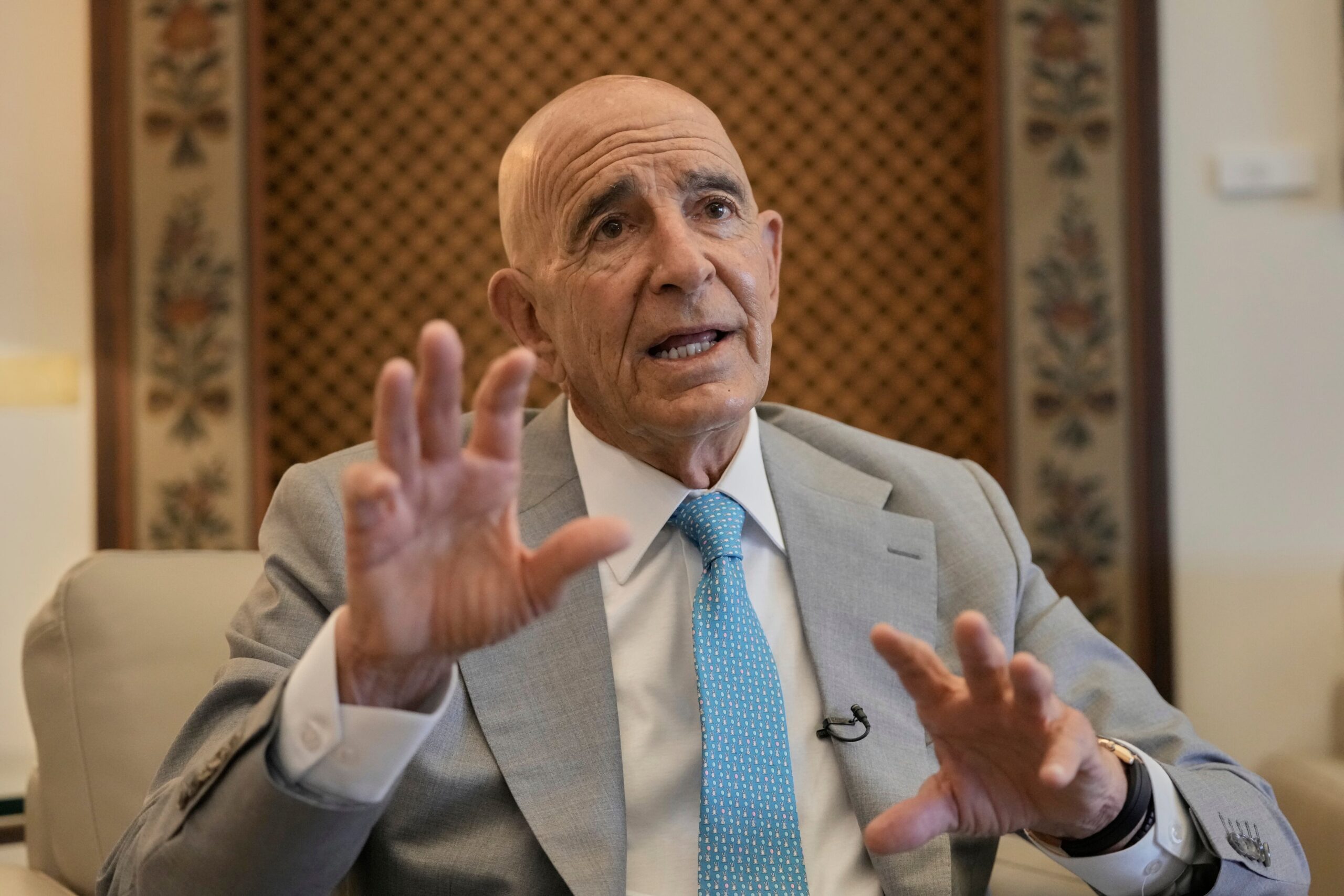In an attempt to restore order, Syrian government soldiers invaded; however, they ultimately sided with the Bedouins and then withdrew under a ceasefire agreement with Druze factions. The battle has claimed hundreds of lives, and some government fighters are accused of shooting dead Druze people and looting and burning their homes.
Meanwhile, Israel stepped in last week on behalf of the Druze, who are frequently employed by Israel’s military and are seen as a loyal minority within the country. Israel attacked the Syrian Ministry of Defense headquarters in the heart of Damascus and unleashed dozens of strikes on regime army convoys in Sweida.
Without providing specifics, Barrack declared a ceasefire between Israel and Syria over the weekend. Civilians from both sides were scheduled to be evacuated on Monday as Syrian government forces redeployed in Sweida to stop further fighting between the Druze and Bedouins.
US envoy says Israeli intervention came at a very bad time
Although the killings, retaliation, and massacres on both sides are unacceptable, Barrack told the AP that the current Syrian government has done the best it can given its limited resources to handle the various problems that come up when attempting to unite a diverse society. He stated in a subsequent press conference that the Syrian government must answer for any transgressions.
“The United States was not asked, nor did they participate in that decision, nor was it the United States’ responsibility in matters that Israel feels is for its own self-defense,” Barrack stated in reference to Israel’s assault on Syria.
Israel’s action, he argued, “creates another very confusing chapter” and was a terrible time to do it.
Israel and Syria had been holding security-related discussions before the Sweida crisis, and the Trump administration had been pressuring them to advance toward a complete normalization of diplomatic ties.
When the most recent fighting broke out, Israel believed that the area south of Damascus was dubious and that any military action there needed to be discussed and agreed upon with them, according to Barrack. That was not exactly the view of the newly appointed government in Syria.
According to him, the truce that Israel and Syria proclaimed on Saturday is a restricted deal that solely addresses the Sweida dispute. It ignores the more general problems between the two nations, such as Israel’s insistence that the region south of Damascus ought to be demilitarized.
According to Barrack, all sides made every effort to reach a consensus on some issues pertaining to the transfer of Syrian troops and equipment from Damascus to Sweida during the talks preceding the ceasefire.
It’s another matter entirely whether you agree with Israel’s right to interfere in a sovereign state, he said.
He implied that rather than a powerful central government ruling Syria, Israel would rather see the country split and fractured.
“Strong nation states are a threat especially Arab states are viewed as a threat to Israel,” he stated. “I believe all the minority communities in Syria are intelligent enough to say, we’re better off together, centralized,” he remarked.
A Damascus deal with Kurdish forces still in play
Minority religious and ethnic groups in Syria are becoming increasingly distrustful of the new administration in Damascus, which is headed by Sunni Muslim former insurgents who overthrew Bashar Assad, the country’s longstanding despot, in a lightning onslaught in December. This mistrust has been exacerbated by the carnage in Sweida.
The attacks on Druze civilians came after sectarian retaliation strikes on the Syrian coast earlier this year claimed hundreds of civilian lives from the Alawite community, to which Assad belongs. Although Ahmad al-Sharaa, the interim president, has pledged to defend minorities and hold those who attack civilians accountable, many believe his administration has fallen short.
In order to carry out an agreement that would combine the new national army with the Kurdish-led Syrian Democratic Forces, which are supported by the United States, Damascus has been negotiating with the Kurdish forces that dominate a large portion of northeast Syria.
Speaking to SDF leader Mazloum Abdi over the weekend, Barrack stated that he does not think the bloodshed in Sweida will stop those negotiations and that a breakthrough may occur in the upcoming weeks.
Syria has been promised defense help by neighboring Turkey, which has tense relations with Israel and seeks to limit the influence of Kurdish groups along its border.
According to Barrack, the United States is neutral about the possibility of a defense agreement between Syria and Turkey.
“The United States has no business or interest in telling any of the neighboring countries what to do with each other,” he said.
Hezbollah disarmament remains a thorny issue
Following a bloody conflict with Israel that ended in November with a truce mediated by the United States, Barrack’s visit to Lebanon coincided with continued pressure from both domestic and international sources for the Lebanese militant organization Hezbollah to surrender its remaining armament.
Barrack claimed the ceasefire deal didn’t work during a press conference on Monday in Beirut.
Israel claims that its nearly daily attacks in Lebanon are intended to prevent Hezbollah from reestablishing its capabilities. Hezbollah has stated that unless Israel halts its attacks and removes its troops from all of southern Lebanon, it will not talk about disarmament.
According to Barrack, the issue is domestic to Lebanon, even though the United States has been advocating for Hezbollah’s disarmament.
We are here voluntarily in an attempt to bring forth a solution; there are no repercussions, threats, or whips,” he stated. He went on to say that the United States cannot force Israel to take any action regarding the ceasefire.
Thanks to AP
Thanks to AP
Thanks to AP
Thanks to AP
Thanks to AP
Thanks to AP
Thanks to AP
Thanks to AP






